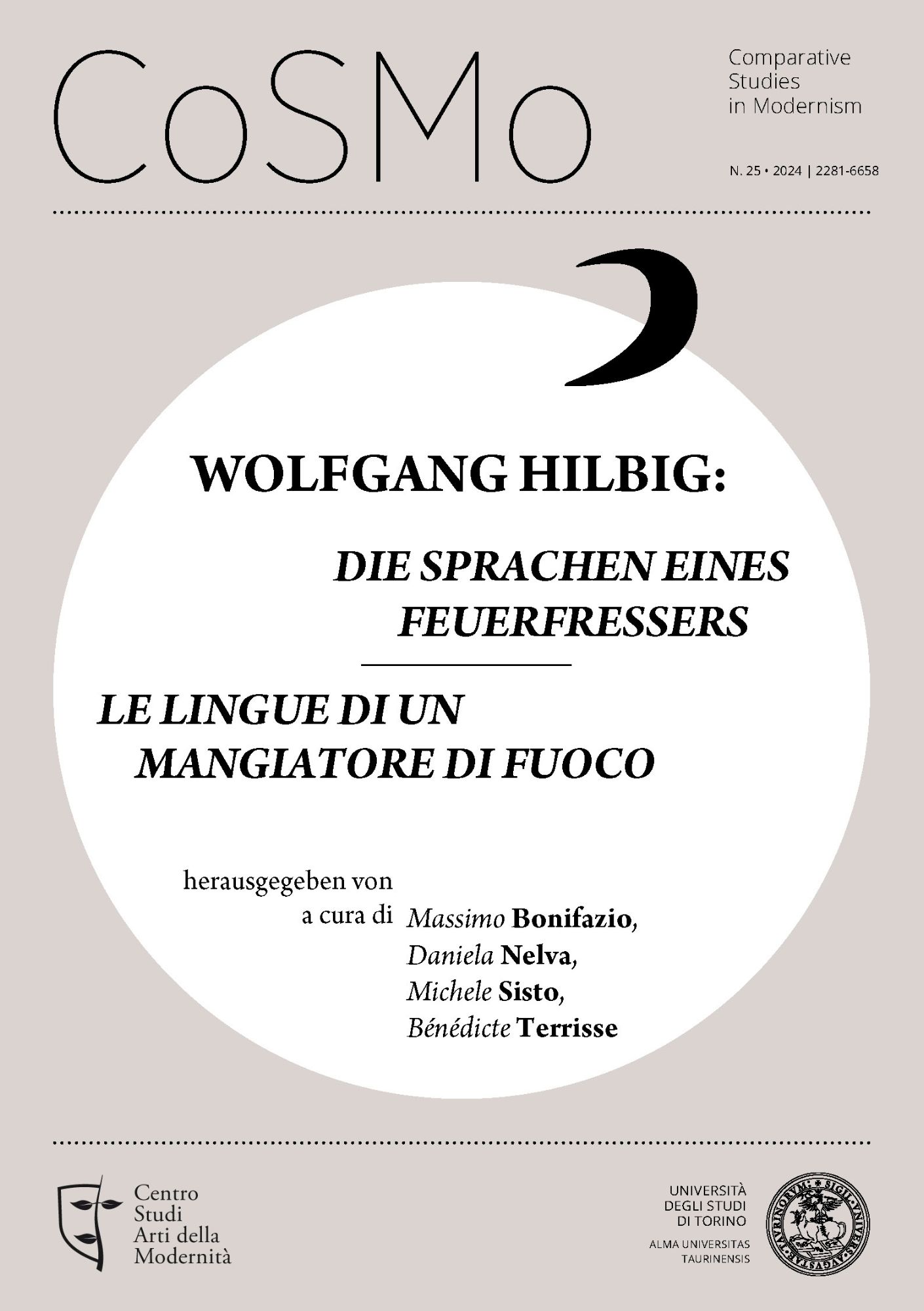References to Dante in Wolfgang Hilbig’s Work
DOI:
https://doi.org/10.13135/2281-6658/11477Keywords:
Wolfgang Hilbig, Italy, Dante Alighieri, Divine ComedyAbstract
In Wolfgang Hilbig’s autobiographical text La bella Italia, the protagonist, Hilbig’s alter ego, mentions that he had forgotten Italy when he lived in the GDR and was only sometimes reminded of the country in the south, for example when reading an epilogue to Dante’s Divine Comedy. The essay examines the question of whether Hilbig knew not only an epilogue, but also the Commedia. A work by the Florentine was found in his estate library. Hilbig also refers to Dante in various texts, e.g. in his story “Die Weiber”. In addition, a typescript with the title “Eine Art Ankunft” (“A Kind of Arrival”) was found in his estate, which contains clear references to Dante. Finally, the motif of the dead hanging in trees, which can be found in Hilbig’s Über den Tonfall, is another reference to Dante’s Divine Comedy. On the basis of the evidence presented, it can be assumed with great probability that Hilbig knew Dante’s Commedia.
Downloads
Downloads
Published
Issue
Section
License
Authors keep the copyrights for their work and give the journal the work’s first publication copyright, which is at the same time licensed under a Creative Commons License – Attribution, which in turn allows other parties to share the work with an acknowledgement of the work's authorship and initial publication in this journal.
Content Licence

You are free to copy, distribute and transmit the work, and to adapt the work. You must attribute the work in the manner specified by the author or licensor (but not in any way that suggests that they endorse you or your use of the work).
Metadata licence

CoSMo published articles metadata are dedicated to the public domain by waiving all publisher's rights to the work worldwide under copyright law, including all related and neighboring rights, to the extent allowed by law.
You can copy, modify, distribute and perform the work, even for commercial purposes, all without asking permission.





